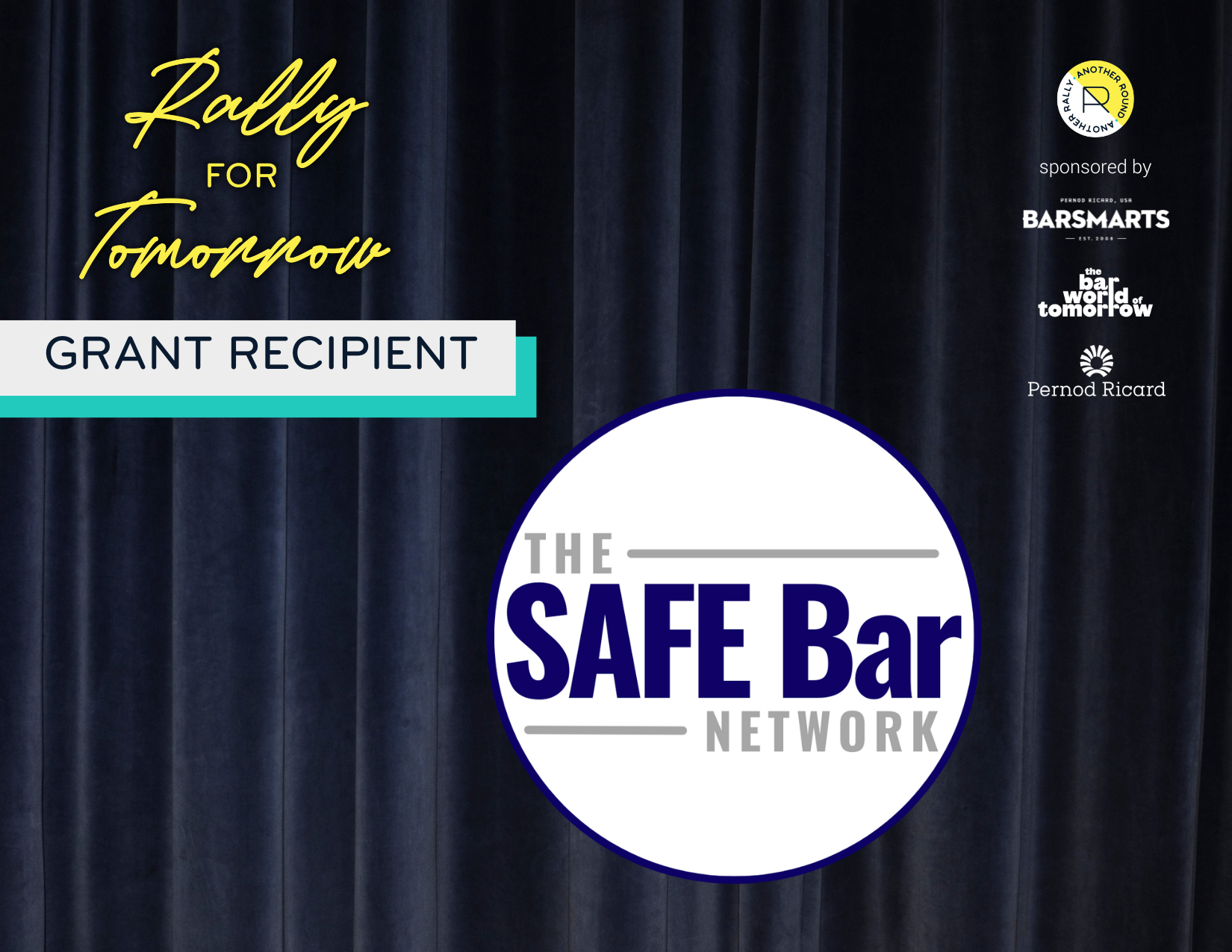
When Haleigh Harrold co-founded SAFE Bar Network in 2020, she sought to revolutionize the nightlife industry’s approach to safety, inclusivity and accountability. In the four years since, SAFE Bar Network has done just that, transforming more than 150 bars into safer spaces through in-person training programs and impactful advocacy initiatives aimed at preventing overconsumption, harassment and other forms of harm in alcohol-serving establishments.
Now, as a recipient of one of this year’s Rally for Tomorrow 2024 Sustainability Grants, SAFE Bar Network has another $15,000 to put toward enhancing safety and inclusivity industrywide. This grant supports the organization’s ongoing expansion efforts, paving the way for a new training program in metro Chicago. It also helps SAFE Bar Network further its mission of boosting bars’ bottom lines by attracting new and repeat customers, increasing profits and decreasing employee turnover, thus creating a sustainable cycle of growth in the sector.

“This work has been around a long time, but it hasn’t always been sustainable,” Haleigh said. She noted that much of SAFE Bar Network’s training focuses on helping venues have ongoing talks with employees about bystander intervention and how to recognize not only overconsumption, but also, uncomfortable or unsafe behavior. Trainees also learn about how to engage with those who’ve had too much to drink and receive guidance on how to check in on these individuals and ensure they get home safely.
While the grant will help finance the program’s expansion into Chicago and compensate bar and restaurant workers for their time spent in training, funding will also go toward providing supplies, toolkits, posters, window clings and other resources businesses need to implement safety measures and support their initiatives. This year’s grant also enables SAFE Bar Network to enlist the aid of Ariel Neal, the president of the Chicago chapter of the United States Bartenders Guild.

An established Chicago-area spirits industry authority, Ariel has a wealth of connections and resources within the city’s bar community, allowing her to act as a trusted liaison between SAFE Bar Network and the (primarily woman- and BIPOC-owned) bar businesses the nonprofit is targeting in the region. Many BIPOC communities have historically lacked access to this type of training, and Haleigh and Ariel plan to work together to ensure equitable distribution and implementation of SAFE Bar Network’s resources and initiatives. They also plan to conduct trainings in establishments where many employees speak English as a second language.
“We’re very grateful for this funding,” Ariel said. “Right now, the participants in these training programs don’t mirror the workers in the hospitality industry.”
While Rally for Tomorrow’s grant funds will help get training opportunities in front of a more diverse demographic, the funding will also help bar businesses make changes that make their establishments safer and more enjoyable for all guests.
“People come and go if they don’t feel connected to a space, and people leave places if they don’t feel safe,” Ariel said. “If we don’t take care of each other’s’ needs – those of our coworkers, managers, customers – we aren’t being of service. It isn’t about just slinging drinks – it’s about reshaping what society is.”

Ariel added that, through the partnership with SAFE Bar Network, she hopes to make hospitality a more prestigious, sustainable career, just as implementing consistent safety standards and protocols did for flight attendants in the aviation industry in the past. She also noted that Chicago is one of the only cities that requires alcohol-serving businesses of a certain size to provide bystander training for employees, emphasizing the city’s proactive approach to promoting safety in bars.
This year’s grant funds will finance training and resources for at least eight Chicago-area establishments and approximately 300 hospitality workers. Additional funding will go toward training for mobile bartenders and others who hold less-traditional roles in the spirits industry.
And while the grant funds aim to enhance sustainability across the entire sector, Haleigh noted that SAFE Bar Network also designs its training programs and resources, themselves, to be sustainable.
“Once the programming is in place, it stays there,” Haleigh said, noting that the grant will allow SAFE Bar Network to cover the costs associated with the program’s launch in Chicago and pay participants for for their time in training. Participating venues will then see a decrease in expenses and a boost in revenue that enables them to donate to SAFE Bar Network and support their membership and training in future years.
Through the implementation of these training programs, venues pay lower insurance premiums and address potential legal liabilities, saving substantial money in the long run. Establishing a reputation as a safe, welcoming space can also help bars attract and retain more customers, further enhancing profitability.
While this $15,000 boost will support SAFE Bar Network’s ongoing expansion efforts, it will also contribute to a sustainable hospitality sector growth by educating workers, strengthening communities, and, ultimately, ensuring safe, inclusive spaces both in front of and behind the bar.

